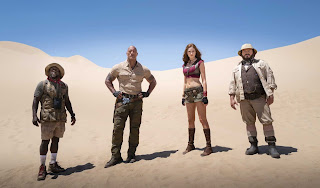Citizen Kane
Release Date: 23rd January 1942 - Australia
Production Companies
RKO Radio Pictures
Genre: Drama
Rating: PG
Runtime: 119 minutes
Budget: $839,727
Box Office Gross: $1,711,106 (Worldwide)
Plot Summary
When famous publishing mogul Charles Foster Kane dies, a reporter must investigate the shocking details of his personal life and the meaning of his final word: "Rosebud."
When famous publishing mogul Charles Foster Kane dies, a reporter must investigate the shocking details of his personal life and the meaning of his final word: "Rosebud."
Cast
Joseph Cotten - Jedediah Leland/Screening Room Reporter
Dorothy Comingore - Susan Alexander Kane
Ray Collins - James W. Gettys
George Coulouris - Walter
Parks Thatcher
Agnes Moorehead - Mary Kane
Erskine Sanford - Herbert Carter/Screening Room Reporter
Everett Sloane - Mr. Bernstein
William Alland - Jerry Thompson
Paul Stewart - Raymond
Fortunio Bonanova - Matiste
Philip Van Zandt - Mr. Rawlston
Georgia Backus - Miss Anderson
Harry Shannon - Kane's Father
Sonny Bupp - Kane III
Buddy Swan - Kane - Age Eight
Orson Welles - Charles Foster
Kane
Kane
Alan Ladd - Pipe Smoking Reporter (Uncredited)
Arthur O'Connell - Reporter (Uncredited)
Gregg Toland - Interviewer in 1935 Newsreel (Cameo) (Uncredited)
Herman J. Mankiewicz - Newspaperman (Cameo) (Uncredited)
Crew
Original Screenplay/
Production/Director - Orson
Welles

Original Screenplay - Herman J. Mankiewicz
Contributing Writer/Editorial
Supervisor - John Houseman
(Uncredited)
Contributing Writers - Roger
Q. Denny and Mollie Kent
(Uncredited)
Executive Producer - George
Schaefer (Uncredited)
Production Advisor - Miriam Geiger (Uncredited)
Art Director - Van Nest Polglase
Ferguson
Set Decorator - Darrell Silvera (Uncredited)
Makeup Artist - Maurice Seiderman (Uncredited)
Costumes - Edward Stevenson
Photography - Gregg Toland
Grip - Ralph Hoge (Uncredited)
Special Effects - Vernon L. Walker
Optical Effects - Linwood G. Dunn (Uncredited)
Sound Recordists - Bailey Fesler,
James G. Stewart, Terry Kellum (Uncredited)
and Edward Ullman (Uncredited)
Sound Supervisor - John Aalberg (Uncredited)
Editor - Robert Wise
Assistant Editor - Mark Robson (Uncredited)
Music - Bernard Herrmann
Awards
1942 Academy Awards
Best Writing, Original Screenplay - Orson Welles
and Herman J. Mankiewicz (Won)
————————
Best Picture - Orson Welles (Nominated)
Best Director - Orson Welles (Nominated)
Best Actor - Orson Welles (Nominated)
Best Cinematography - Gregg Toland (Nominated)
Best Art Direction-Interior Decoration, Black-and-
White - Perry Ferguson, Van Nest Polglase,
A. Roland Fields and Darrell Silvera (Nominated)
Best Film Editing - Robert Wise (Nominated)
Best Sound, Recording - John Aalberg (Nominated)
Best Music, Scoring of a Dramatic Picture -
Bernard Herrmann (Nominated)
Review
Most film buffs and directors have considered CITIZEN KANE the best film ever. Others believed it was Vertigo that outranked Orson Welles' classic masterpiece. Before I watched the movie, I remember seeing bits of the picture, such as the twist ending. I didn't get to watch the whole thing when I came across it recently. The history of CITIZEN KANE dates back to before a new generation of filmmakers and movie buffs like us were even born, as the film first premiered in 1941.
Initially, critics loved the film, but it was unrecognised at the box office and pulled from theatres because of the influence of news baron William Randolph Hearst. It's believed that the movie includes unflattering comparisons between him and the character of Charles Foster Kane, although it's only loosely based on him. It caused Hearst to detest it and use his connections to remove the film before anyone could see it. KANE didn't resurface until the mid-50s after Hearst's death, and when television became everyone's favourite pastime. Then, decades later, the movie was vindicated, and the rest is history.
Initially, critics loved the film, but it was unrecognised at the box office and pulled from theatres because of the influence of news baron William Randolph Hearst. It's believed that the movie includes unflattering comparisons between him and the character of Charles Foster Kane, although it's only loosely based on him. It caused Hearst to detest it and use his connections to remove the film before anyone could see it. KANE didn't resurface until the mid-50s after Hearst's death, and when television became everyone's favourite pastime. Then, decades later, the movie was vindicated, and the rest is history.
There is so much craftsmanship poured into CITIZEN KANE as it was Orson Welles' magnum opus. Welles self-financed and even co-wrote, produced, directed, and acted in his movie. He was extremely proud of accomplishing it. He was also genuine in his performance as Charles Foster Kane. From a technical standpoint, Gregg Toland's cinematography was magnificent. It paved the way for other cinematographers to use his camera techniques in modern movies. Aside from the cinematography, there is little to mention, except for the narrative, another noteworthy aspect. It is well-written and well-structured, containing a twist ending that is the granddaddy of all.
I'm hesitant to watch this classic again because it didn't measure up to my expectations. Even though CITIZEN KANE is not one of my favourite films, its iconic status makes it a classic. The movie is available for streaming for those who wish to watch it.
Star rating: (8/10) Very Good Movie






























